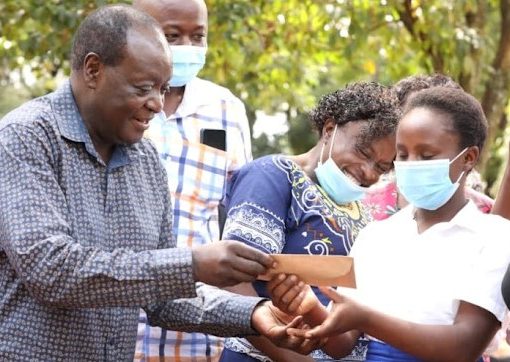Pastoralists’ community in Laikipia North Sub County are an inch closer to eradicating invasive Cactus plant (Opuntia Stricta) by use of cochineal insects.
Cactus plant also known as Prickly pear had overrun 80% of Laikipia landscape hence displacing residents from their land which they use for grazing.
However, the situation is changing thanks to the introduction of a biological method use of Cochineal insects five years ago by Northern Rangeland Trust (NRT), a Laikipia based conservation organization.
Margrate Mamai demonstrated that insects effectively remove sap from cactus plants until it dies, a method that outperforms traditional methods due to its efficiency and minimal labor.
A 60-year-old woman in Ilpolei, Laikipia North, during a ceremony to mark the five years’ milestone on the eradicating the invasive plant, highlighted the suffering caused by the prickly pear plant, resulting in high poverty index due to livestock deaths.
‘’We don’t practice farming as a pastoral community and only depend on livestock to support our families but over the years, Opuntia has affected our goats and cows. We are left poor as a result,” revealed Mamai.
Mamai noted that once the goats feed on the cactus fruits which have spines, they are lodged on the mouth and intestines hence causing them painful death and sometimes the large cactus spines blind the livestock when they are foraging.
However, Mamai, a Naibunga community member, attributed the eradication of Opuntia Stricta to the use of cochineal bugs, allowing their livestock to access pasture more easily.
Additionally, she said that they bled the cochineal insects by the help of NRT and which they apply to the cactus plants monthly to infect and kill them.
‘’We are celebrating since the insects are eradicating Opuntia Stricta and our land is clear. Earlier they were impassable due to this thorny plant, even my homestead, they were everywhere,” she noted
On the other hand, Tom Putunoi reiterated the impact of Cochineal bugs noting they had helped the community have access to grazing fields which was suppressed by the invasive Cactus plant.
Naibunga conservancy Chairman Peter Kilesi revealed that they had reclaimed over 10-acres-of land in the area from the Opuntia Stricta in the area.
According to the UK – Based centre for Agriculture and Bioscience International (CABI), it is estimated that the invasive species cost the world almost 5 percent of Gross Domestic Product which translates to US $1.4 trillion per year. The invasive weeds affect the most vulnerable people threatening their economic growth.
CABI further shows that if the invasive weeds are not managed more than 70 percent of natural pasture will be invaded.
Opuntia Stricta was first introduced in Kenya by the colonialists in the early 1900s as natural fencing but later spread across the region.
By Muturi Mwangi





